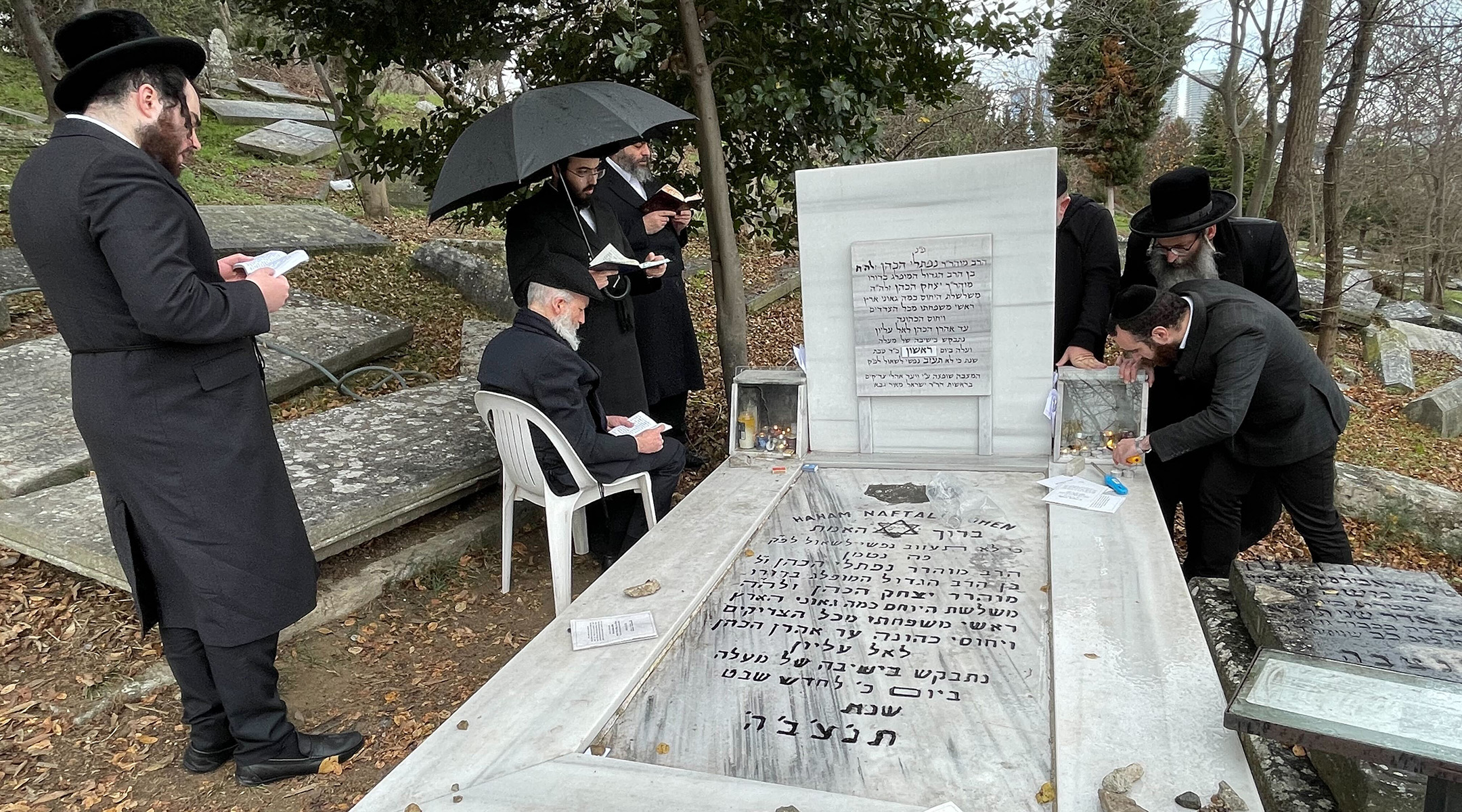38% of American Jews believe in life after death, study finds
About half of American Jews, and nearly two-thirds of Israeli Jews, said animals can have spirits

Haredi Orthodox pilgrims pray at the grave of Rabbi Naphtali Tzvi Katz, a 17th-century Kabbalist, in the Ortakoy neighborhood of Istanbul, Jan. 17, 2023. (David I. Klein)
(JTA) — Only 38% of American Jews believe in an afterlife, far fewer than in Israel, according to a new study of spiritual practices around the world.
That share was lower than the 83% of U.S. Christians who believe in life after death, as well as the 58% of Israeli Jews who say there is an afterlife.
The finding dovetailed with other results in the survey published Tuesday by the Pew Research Center, which found that Jews were among the least likely in the United States to say animals or objects can have spirits, or that features of nature such as mountains or rivers have spiritual energy.
About half of American Jews, and nearly two-thirds of Israeli Jews, said animals can have spirits. A much smaller fraction of Israeli Jews said spirits could be found in objects or in nature, beliefs that are not central to traditional Judaism.
Unlike in some Christian denominations where a belief in the afterlife is an organizing idea, Judaism has no single doctrine about what happens after death. Still, the idea that ultimately the dead will be resurrected by God is a core aspect of classical rabbinic theology embraced by Orthodox Jews, who make up a larger share of Jews in Israel than in the United States.
Jews did rate higher when it comes to key Jewish practices and beliefs. They were the most likely in the United States, for example, to say that they used candles or incense religiously, an unsurprising finding given that lighting Hanukkah candles is a relatively widespread practice among Jews in the United States and globally. Jews also traditionally light candles on Friday evening to mark the beginning of Shabbat, as well as to welcome major holidays.
In the United States, 42% of Jews said they used candles religiously, a number that rose to 53% in Israel. While those numbers were higher than among members of other religions in each country, other surveys indicate that they could be an undercount. A 2022 survey in Israel, for example, found that 78% of Israeli Jews light Hanukkah candles. And a 2020 survey by Pew found that upwards of 80% of American Jews own a Hanukkah menorah.
Likewise, this week’s study found that 62% of Israeli Jews, and 49% of American Jews, perform religious fasts — the central observance of Yom Kippur. In the United States, the observance is more common among Muslims (80%), for whom fasting during the holy month of Ramadan is a key ritual. Among American Christians, 27% fast.
The survey included more than 12,000 respondents, including an oversample of Jews, and was conducted in February. The overall margin of error was 1.5%.















